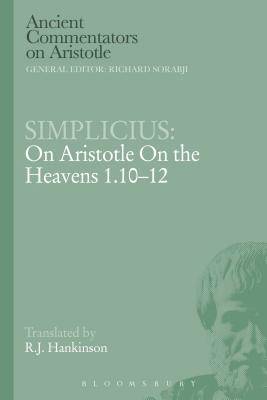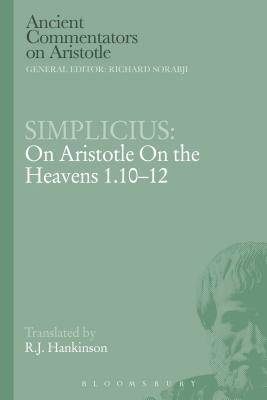
- Afhalen na 1 uur in een winkel met voorraad
- Gratis thuislevering in België vanaf € 30
- Ruim aanbod met 7 miljoen producten
- Afhalen na 1 uur in een winkel met voorraad
- Gratis thuislevering in België vanaf € 30
- Ruim aanbod met 7 miljoen producten
Zoeken
Omschrijving
In the three chapters of On the Heavens dealt with in this volume, Aristotle argues that the universe is ungenerated and indestructible. In Simplicius' commentary, translated here, we see a battle royal between the Neoplatonist Simplicius and the Aristotelian Alexander, whose lost commentary on Aristotle's On the Heavens Simplicius partly preserves. Simplicius' rival, the Christian Philoponus, had conducted a parallel battle in his Against Proclus but had taken the side of Alexander against Proclus and other Platonists, arguing that Plato's Timaeus gives a beginning to the universe. Simplicius takes the Platonist side, denying that Plato intended a beginning. The origin to which Plato refers is, according to Simplicius, not a temporal origin, but the divine cause that produces the world without beginning.
Specificaties
Betrokkenen
- Auteur(s):
- Vertaler(s):
- Uitgeverij:
Inhoud
- Aantal bladzijden:
- 192
- Taal:
- Engels
- Reeks:
Eigenschappen
- Productcode (EAN):
- 9781472557438
- Verschijningsdatum:
- 10/04/2014
- Uitvoering:
- Paperback
- Formaat:
- Trade paperback (VS)
- Afmetingen:
- 156 mm x 234 mm
- Gewicht:
- 213 g

Alleen bij Standaard Boekhandel
+ 176 punten op je klantenkaart van Standaard Boekhandel
Beoordelingen
We publiceren alleen reviews die voldoen aan de voorwaarden voor reviews. Bekijk onze voorwaarden voor reviews.











